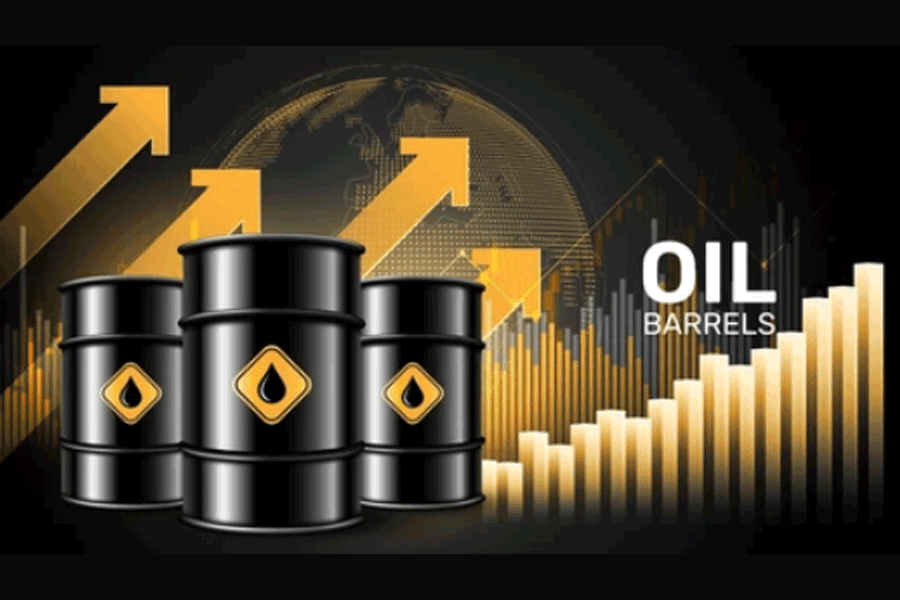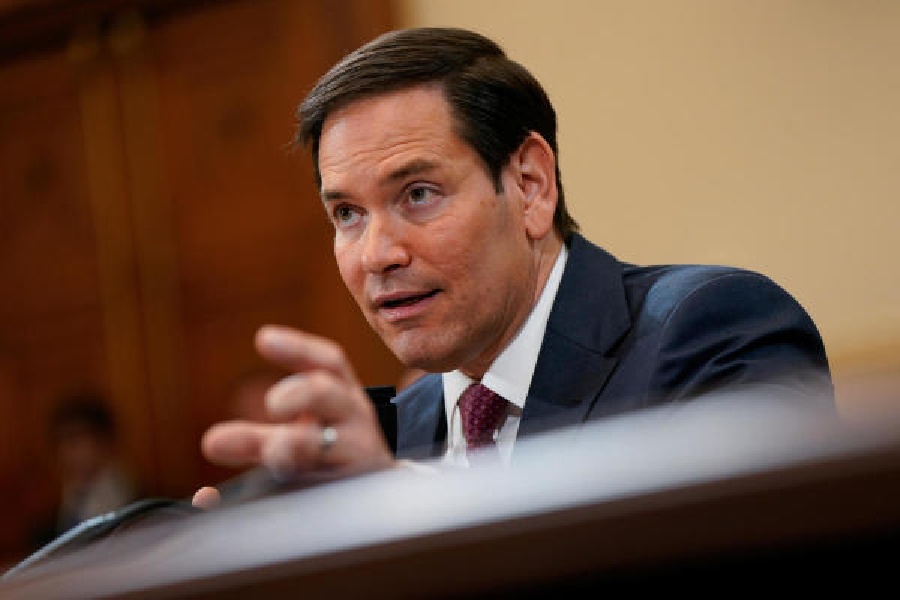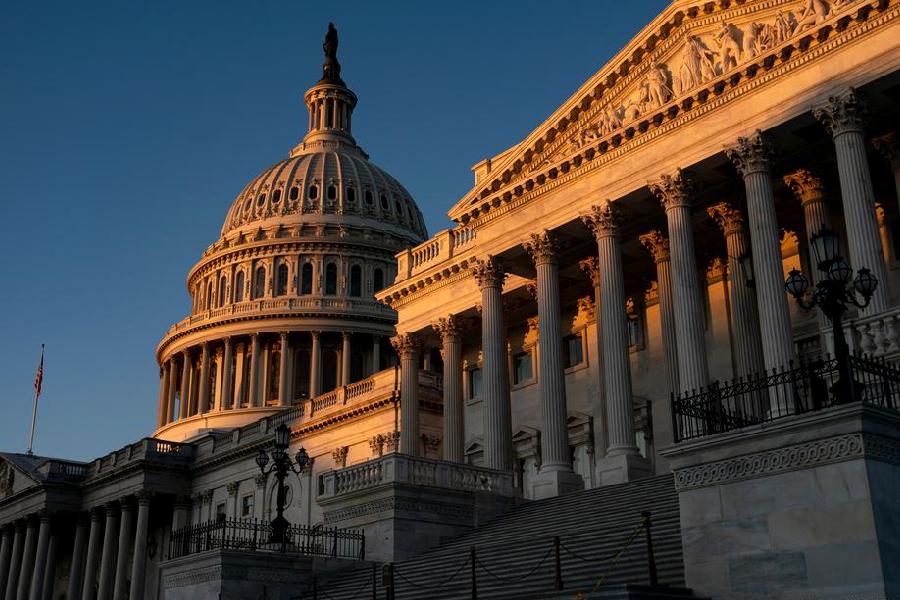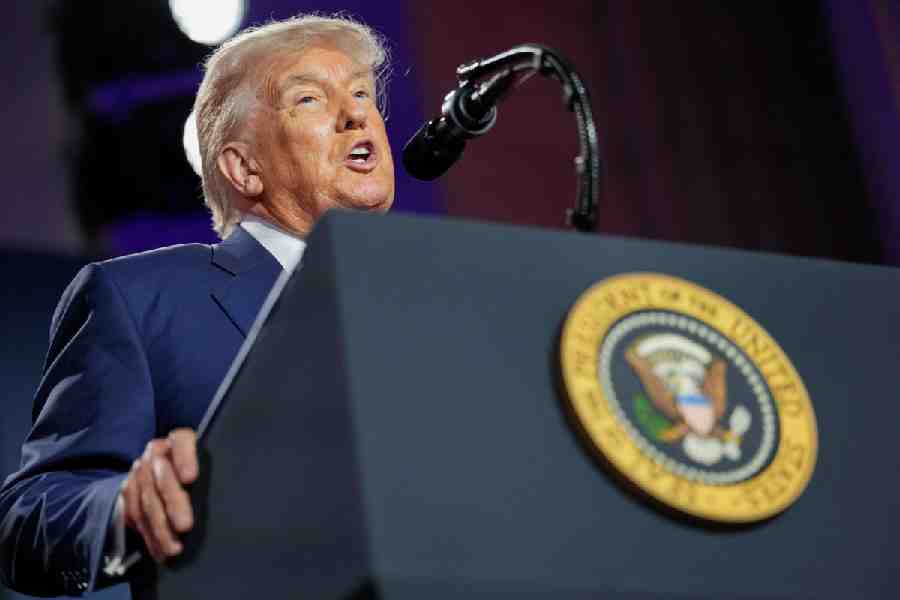India’s official response to Donald Trump’s tariff plus penalty threat for buying Russian oil has been in officialese, but Delhi is sending signals that it will not bend too much for Washington.
In drips and dribbles, unnamed sources have been spelling that out to publications seen as close to the government.
"India's energy purchases are driven by national interests and market forces. We do not have any reports of Indian oil firms halting Russian imports," NDTV quoted a ministry of external affairs source as saying on Saturday, days after a Reuters report said India’s state refiners have not bought Russian crude for around a week.
News agency ANI also put out a series of posts on X on Saturday morning, citing unnamed government sources, as saying that India continues to import oil from Russian suppliers. “Their supply decisions are guided by price, grade of crude, inventories, logistics and other economic factors,” the sources told ANI.
They also emphasised: “Russian oil has never been sanctioned; instead, it was subjected to a G7/EU price-cap mechanism designed to limit revenue while ensuring global supplies continued to flow. India has acted as a responsible global energy actor, ensuring markets remain liquid and prices stable. India’s purchases have remained fully legitimate and within the framework of international norms.”
Indian OMCs have consistently complied with the US-recommended price cap of $60 per barrel for Russian crude. They have not bought sanctioned oil from Iran or Venezuela. While the EU recently recommended lowering the cap to $47.6 per barrel starting in September, Indian firms have operated within the bounds of prevailing norms.
“As the world’s third-largest energy consumer with 85% import dependence, India strategically adapted its sourcing to secure affordable energy while fully adhering to international norms,” the sources added.
Officials also highlighted India’s positive role in stabilising global energy markets amid OPEC+ production cuts and the fallout from geopolitical tensions. “Had India not absorbed discounted Russian crude combined with OPEC+ production cuts of 5.86 mb/d, global oil prices could have surged well beyond the March 2022 peak of US$137/bbl, intensifying inflationary pressures worldwide,” said the sources.
India’s approach, they noted, prevented further dislocation of supply chains. “India’s pragmatic approach kept oil flowing, prices stable, and markets balanced, while fully respecting international frameworks,” the sources told ANI.
The flurry of sources’ stories came after Trump told reporters on Friday: “Well, I understand India no longer is going to be buying oil from Russia. That's what I heard. I don't know if that's right or not, but that's a good step. We'll see what happens.”
According to the executive order, India will face tariffs of 25 per cent, but it did not mention the “penalty” that Trump had said India will have to pay because of its purchases of Russian military equipment and energy.
Ministry of external affairs spokesperson Randhir Jaiswal was asked at the weekly media briefing on Friday about the reports claiming that Indian oil companies have stopped buying oil from Russia in the past week.
Jaiswal’s response was as diplomatic as it gets.
As far as sourcing India’s energy requirements is concerned, he said, “We take decisions based on the price at which oil is available in the international market and depending on the global situation at that time. As for the specifics of your particular question, I am not aware of it. I don’t have details of these specifics.”
Meanwhile, NDTV quoted government sources as saying that the tariffs “will have a 'negligible' impact on the economy”.
“The GDP loss is not likely to exceed 0.2 per cent, sources said, echoing what an India-based economist told Bloomberg - that GDP would likely slow by 0.3 per cent only,” it reported.
The same sources “also stressed the government will not bow to American pressure to open price-sensitive agriculture and dairy markets, or allow the import of beef or 'non-veg milk', i.e., milk from cows fed animal-based products like bonemeal.”













